Filter by
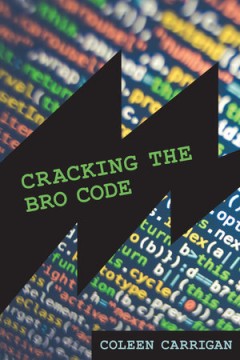
Cracking the Bro Code
Why dominant racial and gender groups have preferential access to jobs in computing, and how feminist labor activism in computing culture can transform the field into a force that serves democracy and social justice. Cracking the Bro Code is a bold ethnographic study of sexism and racism in contemporary computing cultures theorized through the analytical frame of the “Bro Code.” Drawing …
- Edition
- -
- ISBN/ISSN
- 9780262377157
- Collation
- -
- Series Title
- -
- Call Number
- 600
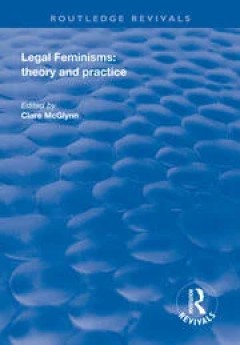
Legal Feminisms
First published in 1998, this book explores the links between theories of feminism and the practice of law, and does so through an examination of a number of contemporary themes in feminist legal studies. From an interdisciplinary perspective, this book examines, as one of its overarching themes, the existence of a distinctively female legal voice, or voices. In arguing for a recognition of the…
- Edition
- -
- ISBN/ISSN
- -
- Collation
- -
- Series Title
- -
- Call Number
- -
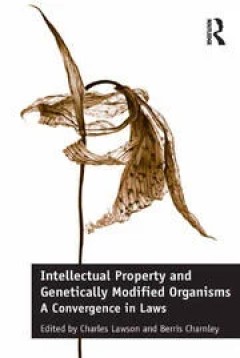
Intellectual Property and Genetically Modified Organisms
Taking a global viewpoint, this volume addresses issues arising from recent developments in the enduring and topical debates over Genetically Modified Organisms (GMOs) and their relationship to Intellectual Property (IP). The work examines changing responses to the growing acceptance and prevalence of GMOs. Drawing together perspectives from several of the leading international scholars in this…
- Edition
- -
- ISBN/ISSN
- -
- Collation
- -
- Series Title
- -
- Call Number
- -
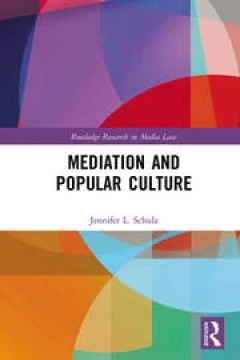
Mediation & Popular Culture
This book examines mediation topics such as impartiality, self-determination and fair outcomes through popular culture lenses. Popular television shows and award-winning films are used as illustrative examples to illuminate under-represented mediation topics such as feelings and expert intuition, conflicts of interest and repeat business, and deception and caucusing. The author also employs res…
- Edition
- -
- ISBN/ISSN
- -
- Collation
- -
- Series Title
- -
- Call Number
- -

Democratic Transformation and the Vernacular Public Arena in India
Since the structural change in Indian society that began in the 1990s - the result of the liberalisation of the economy, devolution of power, and decentralisation of the government–an unprecedented, democratic transformation has been taking place. This has caused the emergence of unexpected coalitions and alliances across diverse castes, classes, and religious groups according to the issues i…
- Edition
- -
- ISBN/ISSN
- -
- Collation
- -
- Series Title
- -
- Call Number
- -
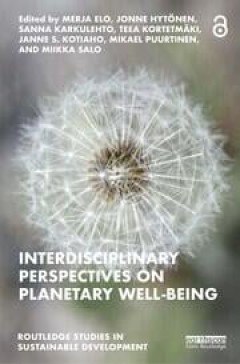
Interdisciplinary Perspectives on Planetary Well-Being
This book proposes a paradigm shift in how human and nonhuman well-being are perceived and approached. In response to years of accelerated decline in the health of ecosystems and their inhabitants, this edited collection presents planetary well-being as a new cross-disciplinary concept to foster global transformation towards a more equal and inclusive framing of well-being. Throughout thi…
- Edition
- -
- ISBN/ISSN
- -
- Collation
- -
- Series Title
- -
- Call Number
- -
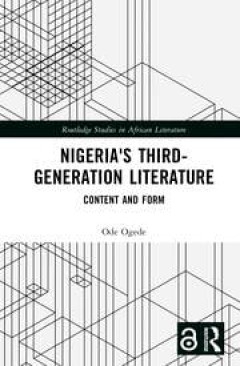
Nigeria's Third-Generation Literature
This book considers the evolution and characteristics of Nigeria’s third-generation literature, which emerged between the late 1980s and the early 1990s and is marked by expressive modes and concerns distinctly different from those of the preceding era. The creative writing of this period reflects new sensibilities and anxieties about Nigeria’s changing fortunes in the post-colonial era.…
- Edition
- -
- ISBN/ISSN
- -
- Collation
- -
- Series Title
- -
- Call Number
- -
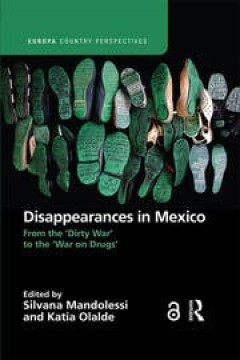
Disappearances in Mexico
This volume presents an interdisciplinary analysis of the practice of disappearances in Mexico, from the period of the so-called ‘dirty war’ to the current crisis of disappearances associated with the country’s ‘war on drugs’, during which more than 80,000 people have disappeared. The volume brings together contributions by distinguished scholars from Mexico, Argentina and Europe, who…
- Edition
- -
- ISBN/ISSN
- -
- Collation
- -
- Series Title
- -
- Call Number
- -

Reframing Immigrant Resistance
The Open Access version of this book, available at https://www.taylorfrancis.com, has been made available under a Creative Commons Attribution-Non Commercial-No Derivatives 4.0 license. This book focuses on the political participation and grassroots mobilization of immigrants and racialized communities in the European context. Based on extensive data collected in Italy, it explores the role …
- Edition
- -
- ISBN/ISSN
- -
- Collation
- -
- Series Title
- -
- Call Number
- -
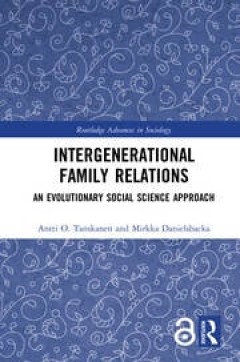
Intergenerational Family Relations
This book offers a synthesis of social science and evolutionary approaches to the study of intergenerational relations, using biological, psychological and sociological factors to develop a single framework for understanding why kin help one another across generations. With attention to both biological family relations as well as in-law and step-relations, it provides an overview of existing st…
- Edition
- -
- ISBN/ISSN
- -
- Collation
- -
- Series Title
- -
- Call Number
- -
 Computer Science, Information & General Works
Computer Science, Information & General Works  Philosophy & Psychology
Philosophy & Psychology  Religion
Religion  Social Sciences
Social Sciences  Language
Language  Pure Science
Pure Science  Applied Sciences
Applied Sciences  Art & Recreation
Art & Recreation  Literature
Literature  History & Geography
History & Geography